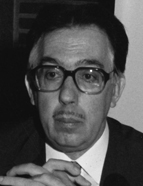

In July 1976, he was hired as Full Professor on secondment at the Universidade Nova de Lisboa [The New University of Lisbon] and thus began his third and last cycle of his rich and very full academic life … And more specifically, from the moment he was sworn in as President of the Founding Committee of the Faculdade de Ciências Sociais e Humanas [Faculty of Social Sciences and Humanities], in December 1977, he supervised the work that would give it substance until October 1980. He was appointed Head of the Foundation Course created by the government in 1977 as preparation for university admission. He would be Chairman of the Scientific Council of the Faculdade twice and in the Department of History, of which he was member, he prepared the launch of the first degreeand master courses in Medieval History and in History of the 19th-20th Centuries, which began functioning in the 1980s. Throughout these years, he continued to give conferences abroad, at this stage mainly at Brazilian Universities (University of S. Paulo, Curitiba, Catholic University of Santos, Catholic University of Porto Alegre), where, in September 1978, he addressed contemporary Portuguese historiography. In his capacity as full professor of the Faculdade de Ciências Sociais e Humanas he opened new horizons for research on Portuguese medievality with his teaching and supervision of MA dissertations and PhD theses both in and beyond his own school. This research was centred around the refocusing of urban history with new conceptualizations and methodologies, and rural history, in the study of manor houses, among others. In May 1993, he joined the Departamento de Estudos Alemães [Department of German Studies] where he coordinated the History of Culture area until his retirement in 2003. He also taught in the Departamento de Ciências Políticas e Relações Internacionais [Department of Political Sciences and International Relations], the creation of which was also the fruit of his efforts.
His extensive oeuvre, amounting to over sixty books and a thousand articles, was basically divided into two chronological scopes, medievality and contemporaneity, the former perhaps more well-known and recognised than the latter, but both quite innovative. His work reflects his conceptualization of History as a science, with the characteristics of the social sciences and humanities, grounded methodologically on vast, critically measured historical information, supporting a sharp and insightful interpretation. It brings new, amply evidenced knowledge in a reflected and structured work mirrored in a writing style where the accuracy of historical discourse mingles with engaging literary language. In 1958 and in his auspicious 1960s, seminal works on medieval times were published and reprinted time and time again.
